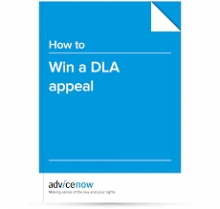Work TV
Watch our TV Channel dedicated to the ‘World of Work’. Explore our video library for informative videos featuring career opportunities at leading companies, franchising opportunities, further education and recruitment professions and their services.
Simon Collyer
New Labour Market Abuses Watchdog Under Consideration
The Department for Business, Energy and Industrial Strategy is working up options for creating its new labour market abuses watchdog, according to business secretary Greg Clark.
The new body will bring together the relevant functions of the Gangmasters and Labour Abuse Authority, the minimum wage enforcement arm of HM Revenue and Customs, and the Employment Agency Standards Inspectorate (EAS).
The GLAA investigates reports of exploitation and illegal activity in the workplace, while the EAS safeguards the rights of agency workers.
The new body would have powers to police standards in areas like holiday pay and minimum wages.
ABC comment, have your say below:

The ABC Has Joined Social Enterprise UK as A Member
Who are Social Enterprise UK?
They are the leading global authority on social enterprise.
They are the biggest network of social enterprises in the UK.
They are a strategic partner to 6 government departments and have led public policy on social enterprise for 15 years.
They have unrivalled business relationships working with some of the biggest companies in the UK to support social enterprise through their supply chains, people and networks.
Their membership is a network that includes all the leading lights of the UK social enterprise movement from multi-million-pound health care and public service providers to community organisations and retail businesses.
They have created the world’s largest commitment to social procurement through the Buy Social Corporate Challenge.

ABC Comments; have your say below:

UK Government Spent £121.5 Million Avoiding Paying Benefits Says SNP
The UK Government spent over £120 million fighting appeals by claimants who were denied benefits last year – 70% of which were won by claimants who were actually entitled to the support they claimed.
Figures obtained through a Freedom of Information request reveal that the Ministry of Justice spent £121.5 million on social security and child support tribunals in 2017/18 – an increase of almost 15% on the previous year.
An overwhelming majority of those denied benefits by the UK government were found to be entitled to that support – prompting calls by the SNP for an immediate change in approach.
There were 51,256 appeal disposals in the quarter up to December 2018 and 41,171 (80 per cent) were cleared at hearing. Of those cases cleared at hearing, 70% were found in favour of the claimant – an increase of 5% on 2016/17.

Image: SNP MSP Bob Doris
Commenting, SNP MSP Bob Doris said:
“Something has gone seriously wrong here. Choosing to spend £120 million fighting to deny people the support they are entitled to, instead of fixing the problems embedded in the welfare system, really shows where the Tories’ priorities lie.
“These figures are deeply concerning, and expose a system which is systematically hostile towards people who need support the most.
“The grim reality is that the Tories are letting the most vulnerable people in our society down first. Mismanagement such as this is driving more and more people to foodbanks – something which DWP ministers have finally admitted to, but done nothing to fix.
“It’s becoming clearer every day that the Tory government’s current welfare system is simply not fit for purpose.”
ABC Information: This is a shocking fact. The government should be losing around 5% of cases in a fair system. The fact the public are having to fund such a wateful amount of money.

Happy Easter Everyone From the ABC Team
We want to wish everyone a very Happy Easter here at the ABC.
We know how very tough it is now.
Looking at the statistics of those visiting the ABC website we are growing, and well too. As articles stay online, they attract more and more readers. This is what we want, and it shows we are doing a good job.
There is a lot we want to do to the website to bring you more and better information. We are moving to a new office soon and this will also assist us as we are very cramped in our current situation.
The information we get is pouring in, and we want to start adding more information to directly help people. We have been featuring rail companies recently and we are awaiting more news on deals and schemes designed to help jobseekers to interviews and into work.
There is LOTS to do, but your continued support in visiting the ABC is welcome indeed.
Jump on the ABC team everybody, get with the program and come in for the big win…!!
HAPPY EASTER EVERYBODY.
ABC Comment, have you say below:

The Northern Ireland Poverty Bulletin 2017/18
A publication entitled “The Northern Ireland Poverty Bulletin 2017/18” was published today by Department for Communities.
The Northern Ireland Poverty Bulletin is produced annually by the Department for Communities and contains statistics on income and poverty for various population groups.
The bulletin provides analysis on two measures of poverty:
- Relative Poverty - the proportion of individuals who have incomes below 60% of the UK median.
- Absolute Poverty - the proportion of individuals who have incomes below 60% of the UK (inflation adjusted) median income in 2010/11.
A more detailed report ‘The Households Below Average Income’, is due to be published in Summer 2019.
Key findings with regard to Relative Poverty Before Housing Costs (BHC) are summarised below:
- 16% of individuals were in poverty, approximately 292,000 individuals; 2pps lower than the 2016/17 estimate of 18%.
- 19% of children were in poverty, approximately 85,000 children; 3pps lower than the 2016/17 estimate of 22%.
- 15% of working-age adults were in poverty, approximately 162,000 working-age adults; 1pp lower than the 2016/17 estimate of 16%.
- 15% of pensioners were in poverty, approximately 45,000 pensioners; 4pps lower the 2016/17 estimate of 19%.
- While there appears to be large changes in poverty estimates among some of the population sub-groups (e.g. Pensioners), none of the above changes are statistically significant. This is due to the higher levels of uncertainty surrounding estimates for groups with small sample sizes.
The analysis has also been produced on an After Housing Costs (AHC) basis and there were no significant changes in the poverty estimates for any of the population sub-groups.
ABC Comment, have your say below:

UK Labour Market Overview, UK: April 2019 Not As Rosy As It First Seems
Main points for December 2018 to February 2019
The UK employment rate was estimated at 76.1%, higher than for a year earlier (75.4%) and the joint-highest figure on record.
The UK unemployment rate was estimated at 3.9%; it has not been lower since November 1974 to January 1975.
The UK economic inactivity rate was estimated at 20.7%, lower than for a year earlier (21.2%) and the joint-lowest figure on record.
Excluding bonuses, average weekly earnings for employees in Great Britain were estimated to have increased by 3.4%, before adjusting for inflation, and by 1.5%, after adjusting for inflation, compared with a year earlier.
Including bonuses, average weekly earnings for employees in Great Britain were estimated to have increased by 3.5%, before adjusting for inflation, and by 1.6%, after adjusting for inflation, compared with a year earlier.
These are very interesting statistics
- There were an estimated 852,000 job vacancies in the UK, 32,000 more than a year earlier.
- There were an estimated 133,000 vacancies in the human health and social work sector; this sector accounted for 15.6% of all vacancies in the UK.

ABC Note: Although on the surface vacancies seems positive the reality is there are vaery large numbers of vacancies for working for example in care homes - typically minimum wage jobs.
Matthew Percival, CBI Head of Employment, said:
“The UK labour market continues to outperform the rest of the economy. It’s also positive that real pay continues to rise faster than it has on average over the last two years.
“Although securing a Brexit extension means we have averted an economic crisis, politicians must now come together and avoid a no deal scenario or risk impacting the UK’s stellar labour market.”

Commenting on the labour market figures for April 2019, published today by the ONS, Suren Thiru, Head of Economics at the British Chambers of Commerce (BCC), said:
“The strong increase in employment, coupled with another fall in the number of people out of work, suggests that the UK labour market remains in good order.
“However, behind the strong headline figures a number of key challenges remain.
“Businesses are increasingly reporting that persistent hiring difficulties, cost pressures and ongoing uncertainty are dampening recruitment intentions. If this trend is sustained it could well translate into a weakening in UK jobs growth over the next year.
“Pay growth continues to comfortably outstrip price growth, and in real terms is likely to remain in positive territory for some time to come. However, the combination of a sluggish economy, weak productivity and high upfront costs for business is likely to limit the extent of pay rises.
“The record high number of job vacancies is further confirmation of the perennial skills shortages plaguing UK businesses, which continues to hold back business activity and growth.
“To protect the long-term health of the UK labour market, businesses need answers to key questions on how firms will be able to manage their future workforce needs over the next few years. Brexit has distracted government and Westminster for too long, much more must be done at home to address the UK’s chronic skills shortage, including easing the burden of upfront business costs to help firms to hire and train staff.”

ABC comment, have your say below:

Northern Ireland Labour Market Statistics
Labour Market Statistics
The labour market statistics were published today by the Northern Ireland Statistics & Research Agency.
Unemployment rate fell to the joint lowest on record
The latest NI seasonally adjusted unemployment rate for the period December-February 2019 was estimated from the Labour Force Survey at 3.0%. The unemployment rate decreased over the quarter by 0.5 percentage points (pps) and decreased by 0.4pps over the year. Neither the annual nor quarterly change were statistically significant, i.e. the recorded changes did not exceed the variability expected from a sample survey of this size.
The NI unemployment rate (3.0%) was below the UK rate (3.9%), the European Union (6.5%) and the Republic of Ireland (5.3%) rates for January 2019.
Over half (55.8%) of those unemployed in NI were long-term unemployed (i.e. unemployed for one year or more), compared to 26.2% in the UK.
Employment rate increased to the highest on record
The employment rate (71.2%) increased over the quarter by 1.4pps and over the year by 1.8pps to the highest on record. The change in the quarterly employment rate was statistically significant over the quarter i.e. the recorded change exceeded the variability expected from a sample survey of this size and is likely to reflect real change.
The economic inactivity rate (26.6%) decreased over the quarter by 1.0pps and over the year by 1.5pps to one of the lowest rates on record. Neither the annual nor quarterly change were statistically significant, i.e. the recorded changes did not exceed the variability expected from a sample survey of this size.
Confirmed redundancies increased over the year
The number of confirmed redundancies (2,357) in the most recent 12 months is 24% higher than in the previous 12 months. NISRA, acting on behalf of the Department for the Economy, received confirmation that 230 redundancies took place in March 2019.
Increase in workplace pension scheme membership over the year
Pensions results released on 12th April showed the proportion of employees who belonged to a workplace pension scheme in increased over the year to 74%. This is the sixth consecutive year of increases and follows pension reforms in 2012 (the introduction of Automatic Enrolment).
Commentary
The unemployment rate for December – February 2019 was estimated at 3.0%, the joint lowest on record, while the employment rate was estimated at 71.2%, the highest on record. Following a decrease of 1.5pps over the year, the inactivity rate, at 26.6%, is one of the lowest on record, and is similar to the relatively low levels seen in 2016.
ABC Comment, have your say below:

Lone Parents Aim for Supreme Court in Ongoing Legal Challenge Against The ‘Two Child Limit’ In Tax Credits And Universal Credit
Child Poverty Action Group (CPAG) is seeking leave to appeal to the Supreme Court on behalf of two lone mothers with children affected by the two-child limit.
The move follows a Court of Appeal decision today which recognised that children in families with more than two children were prejudicially affected by the policy, but considered that the court was not a suitable institution for deciding on the balance between the interests of children and the interests of the community as a whole in ensuring parental responsibility.
The case was brought on behalf of two lone mothers who each had more than one child before the policy started in April 2017 and who then gave birth to another child after that date. The policy denies tax credits and universal credit to third and subsequent children born after 6 April 2017 save for very limited exceptions. Neither of the mothers in the case intended to conceive the child born after 6 April 2017 – and one was using the contraceptive pill – but, for moral reasons, neither was willing to consider a termination of their pregnancy. One claims Working Tax Credit, the other Income Support in addition to child tax credit.
The Court of Appeal had to decide whether the differential treatment of children in families with more than two children could be justified by the rationale for the policy put forward by the government. The government put forward three aims:
- reducing the fiscal deficit by reducing public expenditure on welfare benefits
- incentivising people to support themselves and their families through work
- ensuring that the social security system is fair to taxpayers and making families in receipt of benefits face the same choices in deciding how many children to have as those who support themselves solely through work.
Two of these aims –reducing public expenditure and incentivising work – were found not to be “rationally capable of providing a justification for limiting entitlement to tax credits on the grounds of the number of children in a family”. This was because reducing expenditure could not justify placing the burden on one particular group and because incentivising work is a generic aim applying equally to all people being supported through benefits and, therefore, could not justify cutting benefits payable to families with more than two children as opposed to families with two or fewer children.
The Court considered that the third aim of fairness and parental choice, when looked at in terms of interests of the children affected, could not be a valid basis for the differential treatment since the children have no choice over the size of family they are born into. However, the Court went on to consider that parental choice and responsibility had to be taken into account also. Since Parliament had considered the issues and passed the legislation, the Court concluded that it should be very slow to displace the balance struck by Parliament on a contentious issue of social and economic policy.

Child Poverty Action Group’s solicitor Carla Clarke said:
“We are disappointed to have lost the appeal overall, but are heartened by the court’s recognition of the interests of children and the need to take account of the UN Convention on the Rights of the Child.
Today’s judgment should not be seen as supportive of the government’s position as it found that two of the three stated aims of the two child policy were incapable of justifying its prejudicial impact on families with more than two children.
The government’s third aim of ensuring fairness to the taxpayer and that all face the same parental choices was found to have no justification from the perspective of the children affected. In relation to parents, we maintain that this is clearly undermined by the fact that two thirds of tax credit recipients with three or more children are in work and that the policy will also affect people who have their children at a time when they are able to support themselves solely through work, but at some time in the future may have a need for support from the social security system.
In its first two years of operation, the two-child policy has led to an estimated 150,000 families being denied support for an additional child through tax credits or universal credit – so far its impact has been solely on babies and toddlers. By the time universal credit is fully rolled out in 2023-24, 300,000 more children will be in poverty as a result of the policy. We are seeking permission to take the case to the Supreme Court because we believe that all children are equally deserving of support regardless of their birth order.”
ABC Comments, have your say below:

UK State Pension Age Reforms Set to Exacerbate Social Inequalities
A new report from the International Longevity Centre UK (ILC) highlights international research from the EXTEND project that confirms that state pension reforms have significant potential to exacerbate social inequalities.
Research from the EXTEND project shows that those best equipped to take advantage of increased state pension age are more highly educated, more highly skilled, and better paid. Conversely, for disadvantaged workers, the current extending working lives agenda could lead to involuntary early labour market exit, due to greater health and care needs and caring responsibilities.
Moreover, as the majority of domestic work and unpaid care work is undertaken by women, this threatens to create new gender inequalities as women struggle to reconcile longer working lives with caring responsibilities.
Research from the EXTEND project reveals that with the increase of state pension age and the move to contribution-based pension schemes, women with lower education levels in the UK may lose up to 25% of their monthly pension entitlements under the new system compared to before.
Comparing pension reforms across five countries, the report shows that other countries have implemented reforms to state pension without exacerbating social inequalities to the same extent as the UK. EXTEND analysis found that in systems with a strong, reliable basic pension that does not depend on contributions, the increase in social inequalities associated with increasing state pension ages is less marked, thus providing greater social sustainability.
As such, ILC calls on government to draw on examples from other countries to reduce the risk of social inequalities when pension ages are adjusted in line with longevity increases. ILC calls for greater support of workers’ health and wellbeing through job and retirement flexibility, as well as support in the management of illnesses and caring responsibilities.
Dr Brian Beach, Senior Research Fellow, ILC says:
“There is a need for wider approaches to encourage work in later life beyond reforms to pensions, including measures to address health and wellbeing at work, to tackle age discrimination in the workplace, and to support those juggling work and caring.”
Professor Alan Walker, Sheffield University says:
“Our research shows that increasing pension age in line with life expectancy is a very blunt instrument that exacerbates inequality and particularly harms older women. If other EU countries can manage the demographic transition without these negative effects why can't we?”
ABC Comment, have your say below:

ABC Information: Report on the EXTEND project below:

Right to Food In Law - Scots Human Rights Commission Wants Government to Implement Access to Food Laws
The right to food should be enshrined in Scots law, according to a new report from the Scottish Human Rights Commission (SHRC). Scotland is being argued is aiming to becoming a 'good food' nation.
With international human rights law outlining government obligations to ensure that food is accessible, adequate and available to everyone, the SHRC has used a new report to call on public authorities to address inequalities in people’s access to adequate food.
The report warns the right to food is not currently being realised, with household food insecurity unacceptably high, while the SHRC also highlighted examples of children experiencing food insecurity, with parents and carers too often relying on emergency food banks and going hungry during school holidays. The report states that none of Scotland’s dietary goals are being met and health inequalities are stark.
The Scottish Government is currently considering the measurement of food insecurity in Scotland. Previous analysis highlighted the gap in evidence around the wider issue of food insecurity directly linked to income.
An independent short life working group on food poverty was convened to consider the issues and make recommendations to the Scottish Government on future actions.
Foreword to the Report
Like many others, I have been appalled by the regular reports of more and more people in our country needing to access foodbanks in order to get by. I know others who would rather go hungry than suffer the indignity of going to a foodbank and, they perceive, begging for food. I count it a privilege to know a few of them as friends. They are not people who are careless with money. They are people who do not have enough money in the first place.
It has been an immense privilege to chair the Independent Working Group on Food Poverty. It has been made up of an inspiring array of extraordinary people each, in their own way, doing their part to end the need for foodbanks in one of the richest countries in the world. This report is our shared work and it is not necessarily representative of the organisations that we come from. It is a testimony to the energy and commitment of the Group's members that they are willing, if asked, to continue to play a collective role in 'ending hunger together.'
Our report makes a number of recommendations relating to how the income of people living in food insecurity can be increased, the quality of food provision can be improved, while it is still required, and more transformative community food models can be established.
Running through our efforts are six core messages:
- The biggest problem is having enough money to feed yourself.
- Every response must be dignified.
- Involving people experiencing food insecurity is where we will find the solution.
- Everyone has the right to good quality and nutritious food.
- Food is about community and not just consumption.
- Emergency food aid is not a long term solution to hunger.
We look forward to discussing with Scottish Ministers how the proposals laid out in this report can be implemented. More importantly, we look forward to a time when together we will have ended hunger in Scotland.
Rev Dr Martin Johnstone
Chair
ABC Note: Food banks in Scotland gave out a record number of food parcels last year, according to new figures. More than170,000 three-day emergency food supplies were distributed by The Trussell Trust's 52 food banks. The charity said it saw a 17% increase in demand north of the border in 2017/18, compared to the previous year.
ABC Comment, have your say below:

ABC Comment: Dignity: Ending Hunger Together in Scotland
























